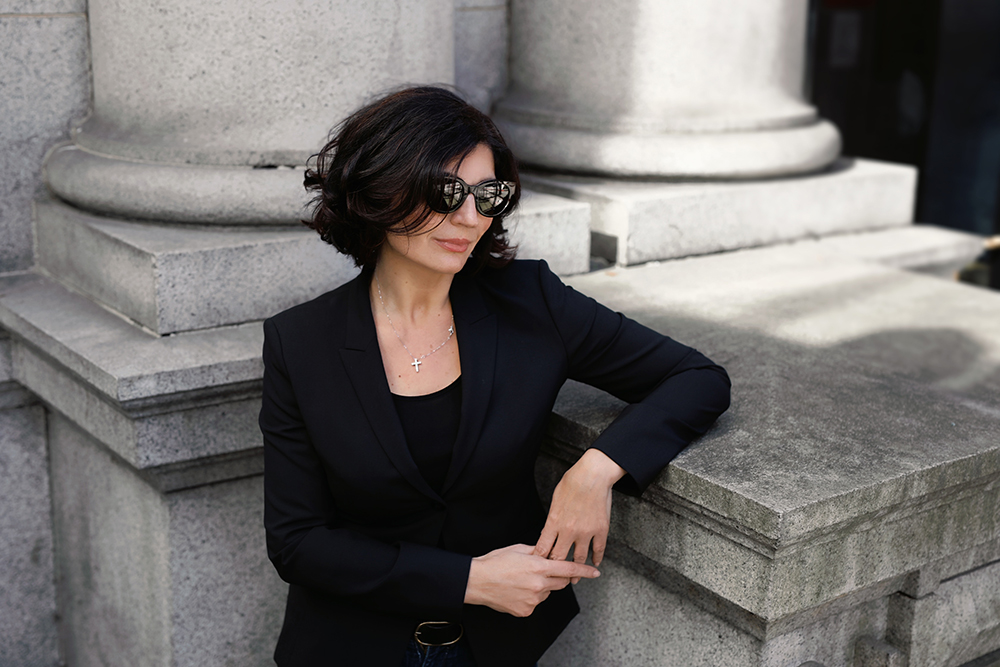Do we want to change and can we?
When a German philosopher Oswald Spengler published the first volume of his book The Decline of the West in 1918 and then the second volume in 1923, the book was a great success, but it also brought about a real intellectual shock and ruckus in various circles of Western European society. As it often happens in the lives of many great thinkers and prophets, it is only after their death – when time itself is shifted to a new time – that people slowly begin to discover the truth of their words and wonder at them.
Indeed, a hundred years later, we are witnessing Spengler’s almost surgically precise diagnosis of the decline of Western civilization (European and American), undoubtedly proven by the history of the 20th century and continued in this century – it seems to me – in an even more perverted and alienated form.
Only a sincerely and deeply concerned thinker like Oswald Spengler could see and, without the need for small talk, rightly point to the impasse of Western European civilization, anticipating a growing gap between civilization and culture. There came a man who told the West that there was something rotten and sick in it which would lead to its inevitable fall.
The doctrine of the cyclical course of history and the rebellion against the theory of the progress of human society, expressed in the direct and unambiguous language of a German, were formed through The Decline of the West into a kind of philosophy of society and history. Refuting the vision of the progress of civilization as the highest achievement that humanity has reached, Spengler speaks of it as the death of culture.
According to him, history is a set of biographies of independent cultures which, like living organisms, are born in order to realize their life potential, go through stages of youth, maturity and old age, and eventually and inevitably die.
Spengler said: “You are dying!” to the face of Western civilization: He proved that it’s sick and exhausted by itself. He called it Faustian as he saw Goethe’s doctor Faust a personification for Western spirit of alienation and unrest. In it, he saw all the signs of doom: the race for wealth, the growing number of poor and hungry, wars and revolutions, capitalism and socialism, atheism, pessimism, cynicism, immorality and democracy that doesn’t actually exist because it is corrupt, and motivated and inspired only by money, its only god.
Today, a hundred years later, Spengler’s book is more than current, as much because of the truthfulness of its content, but also because of its sequel! It is being written by many authors, who almost unanimously all agree that there has been no difference between the West and the East for a long time.
The West is no longer just in the West, it is all around us!
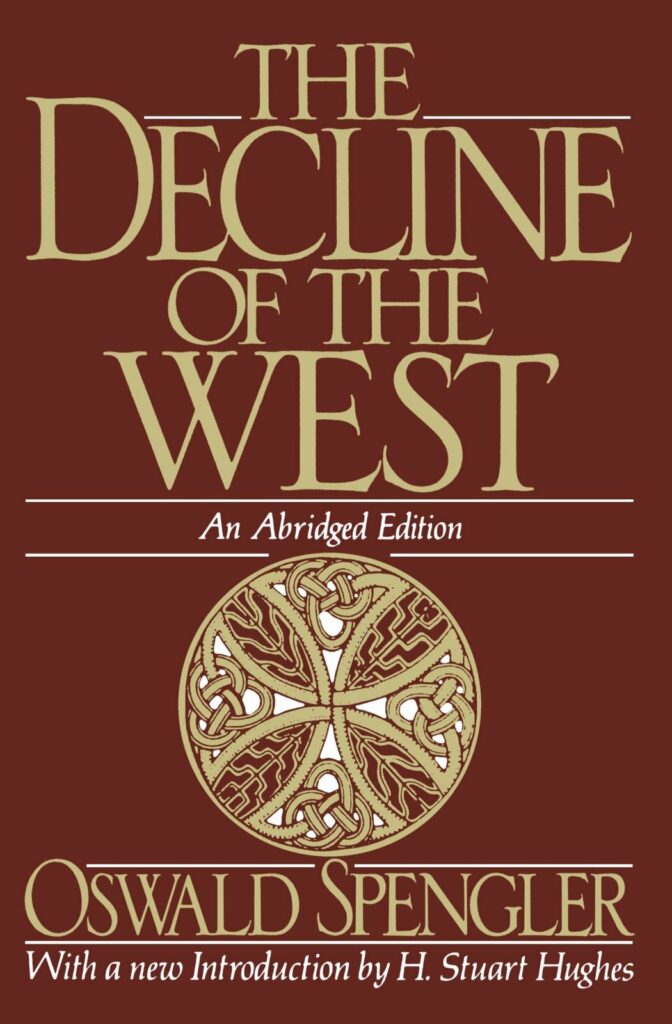
Western civilization with its theories, ideologies and dogmas has become a way of life. Indeed, there is no place in the world nowadays that hasn’t been permeated by the smells and tastes of Western culture. It is the first truly global civilization in history. Even the difference between Orthodoxy and the West is not that evident anymore.
Affected by the pandemic, the challenges of Western atheism, nihilism and this new war in which so much has become meaningless, do we have the desire and will to face ourselves and wonder: Why is this time given to us? Who are we, really? What is the meaning and purpose of life? Can we never go back to the “old normal” because it was never normal in the first place? Do we have the will to change our hearts first, our consciousness, and then embrace each other?
Can we be cured?
The Trap and the Salvation
A man’s path from an individual to a person is long and full of side roads. “The traps are many, the salvation is only one. But the possibilities of salvation are numerous, as are the traps.” said Franz Kafka.
Instead of an individual moving along the path of perceived freedom (from something, for something), one withdraws into oneself and crude and blind egocentrism, considering oneself the center of the world, looking only for personal benefit and gain.
To understand why this is so, we must go back in time and recall when it all went downhill… We must go back to the roots of modern civilization dating back to the Middle Ages, marked by specific historical events: Christianization of Western Europe and the collapse of the Roman Empire, and specific people whose philosophies founded modern civilization, namely Saint Augustine and the philosophers Boethius and Descartes.
The Fall of Rome shook the faith of Western man in the power of institution, which created a very favorable ground for the seeds of Augustine’s teaching about man as an individual to fall on.
In lieu of Christian understanding of man as a person, where man exists in the same way as God exists, whose deity is based on His personal existence (the Trinity – the form of three divine persons), the doctrine of man as an independent individual that draws his existence from himself was created.
Augustine based man’s identity on himself as a subject, on his inner life. Boethius, and later Rene Descartes, defined man as a rational nature.
In the West, truth became knowledge subordinated to the intellectual knowledge of the subject, so life has also become a subjective realization and God understood as an absolute Subject. Thus, life and truth – otherwise the facts of relationships and community – have been transformed into anthropocentric subjectivism. Consequently, the Church itself, separated from its trinitarian existence, has been transformed into religion, which everyone accepts individually and interprets its dogmas and as an individual.
From the moment when Western man turned to himself and his “individualism without the other”, the history of the West has been flowing within the juxtaposition of the opposites: public-private, collective-individual, objective-subjective, institution-revolution and finally, existence and nihilism.
Individualism is not the only determinant of Western civilization. It is also based on rationalism, i.e., the Age of Enlightenment, with its beginning in the 18th century.
Taking the human being as a unit of measurement of existence and life, particularly the mind, which was assigned the place of God, the Age of Enlightenment placed the thinking man on the throne of divinity, assigning him the role of infallible judge in everything that bears, brings and implies life.
For the first time in history, truth was identified with its definition and knowledge or possession of truth with individual understanding of that definition. Truth is identified with knowledge and separated from the dynamics of life. Life is placed in the temple of logic which rises to the ultimate authority either under the guise of moral rules or as a requirement of social and cultural action.
Truth set this way is so relativized that, according to that logic, there are as many truths as there are people sitting at a table and discussing something. Everyone has their own truth because, to everyone, their own truth is true, so why would they even listen to another, let alone accept it!
What a trap!
When making school curriculums, no one ever wonders who Truth is anymore! The consequences of this huge change in the understanding of truth will become the foundation of social and cultural life in the West.
Later, the Scholastics adopted Augustine’s doctrine and defined truth as “correspondence of fact with perception”. The art of that era reflects the change better than words.
When pointed (Gothic) arch stepped into the architecture of temple in the 12th century, it was obvious that it came to visually breathe in the change that had already moved into the space of the temple. Thus, in the 13th century, the Church visually became religion. It started the moment when Church iconography was abandoned in favor of religious painting inspired by individual religious enthusiasm and elation.
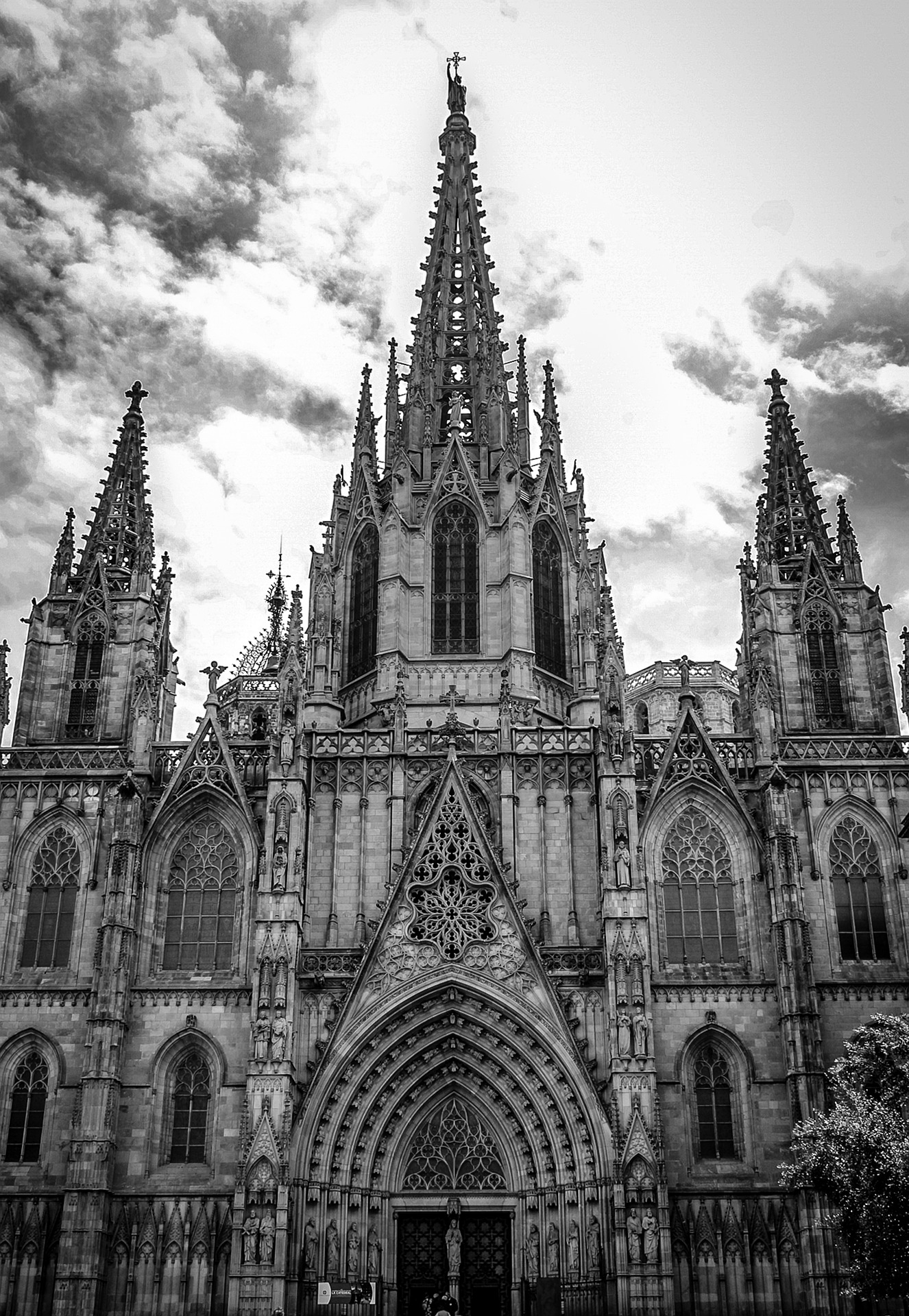
Indeed, this ecstasy lasts to this day… And we can hear – perhaps louder than ever – the cry of individual, the highest value of the liberal world, broken and unrecognizable – as it looks to the sky and prays for salvation.
To round off this part of the story: individualism, moralism and political absolutism are typical products or mythologies of Western civilization that undeniably have roots in Augustine’s doctrine. However, these are all consequences, not the cause! The real question what the cause is and what or who is the salvation.
Before answering, let’s look at some psychological, but also ontological categories related to one’s own breath and spirit in the process of creating the breath and spirit of time.
Fear and Anxiety
We live in a time of fear and anxiety that are in the bloodstream of today’s man. Fear is an innate, genetically programmed reaction to a painful stimulus, but fear is not just a psychological category. Fear is ontological because it represents the connection between the being and the man, life, guilt, freedom, meaning… Death is at the root of all fear.
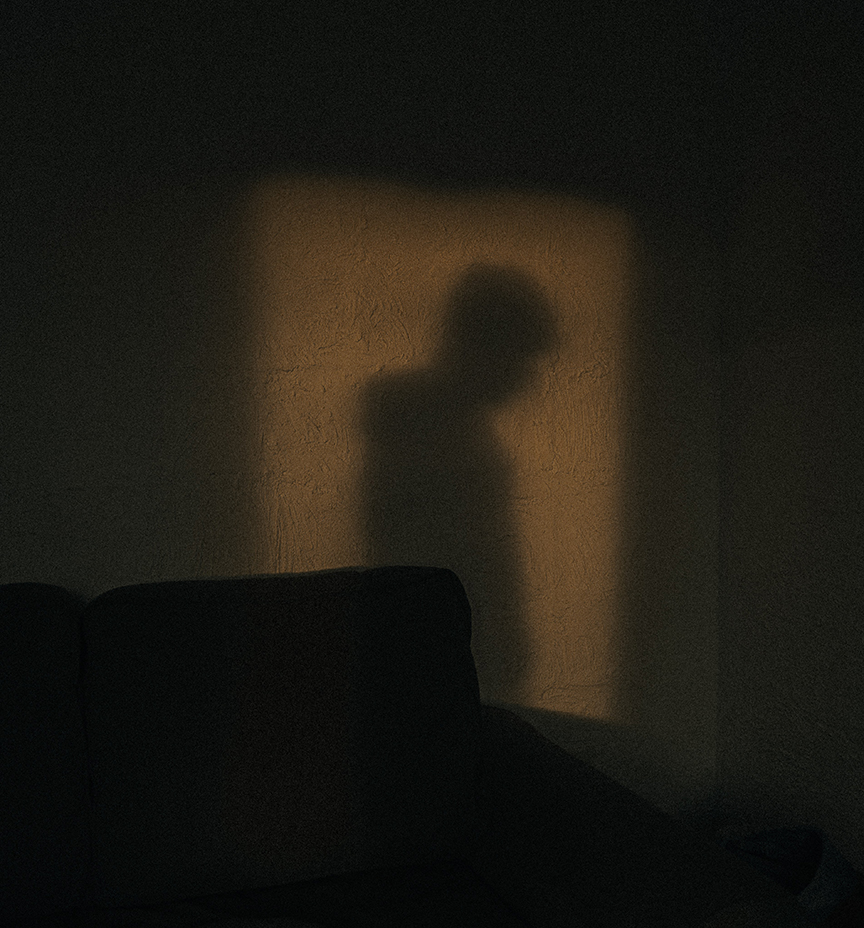
King David, the great military leader, musician and poet, said: “The fear of God is the beginning of wisdom.” Unfortunately, this has often been misunderstood and misinterpreted as human fear. Fear “of” someone is one thing, and fear “for” someone is something completely different. The problem of prepositions in languages goes much deeper…
Human fear is often associated with self-love, egocentrism, and narcissism. Man finds self-validation in possessions and often does what others think of him. Some have money, some have health, some have status, some have property, and everyone is afraid of losing what they have. What one often does not see is that in all these categories one does not possess anything at all because they are changeable and perishable. Still, one does it all in order to control own life and often (more unconsciously, than consciously) the lives of other people, most often loved ones.
This is also the reason why we are constantly doing something (making, writing, painting, etc.), perhaps so not to get lost in eternity. Then we sign our name under what we have declared authentic and ours, as if it will help us when one day the lights go out and we stand before God.
The control is a problem and the fact that man stopped wondering what or who he will rely on when everything he has created disappears one day.
Poof!
The fear of God is not what we usually think it is. It is the fear of hurting God, our heavenly Father, by our bad behavior. The fear of God means to make sure to always tread lightly and know that only our Lord is our best friend, but also Someone who has risen with wounds and scars.
Man seeks a friend in his loved ones, his child, wife, godfather, an idol, ideology, attitudes and in God. All these longings flow like rivers into the ocean of God’s allfriendliness. Everything that God has in himself, man can adopt through Christ.
Unfortunately, the prevailing fear that man carries in himself is the fear of man… That is why John Adamas rightly observed: “Fear is the foundation of most governments!”. Where there is fear as the foundation of power, there is inevitably manipulation because it is a tried and tested way to keep someone in your clutches! Those who deal with manipulations know this very well and that is why they build and base their relationships with others on fear.
On the other hand, there are many triggers for anxiety: accumulated stress, loss of something or someone dear, a big life change, a change of job, various frustrations and the growing fear of publicly and courageously expressing fear of something…
I think it would be chilling to read the statistics on the number of fear-based news we hear or read every few minutes every day, the number of sedatives taken every day around the world, or the number of young people that suffer from anxiety and, in a hopeless and meaningless world (whatever meaning may be), think of suicide.
And drug treatment only eliminates the symptom, but not the cause! Psychotherapy does not go deep enough to the root of the problem and very often doesn’t give the answer to what has really led somebody to serious neurosis.
The Hunger Games
Nowadays, perhaps more than ever, people seem to be disoriented and don’t know where they are going. To a man who has no foundation, who has lost his center, anything can become a guiding star. Spiritual culture gives answers both vertically and horizontally, intellectual culture only asks questions, and individualistic culture exhausts and kills itself.
Today’s slave owners, who call themselves liberators, liberals, know very well how important freedom is for a man.
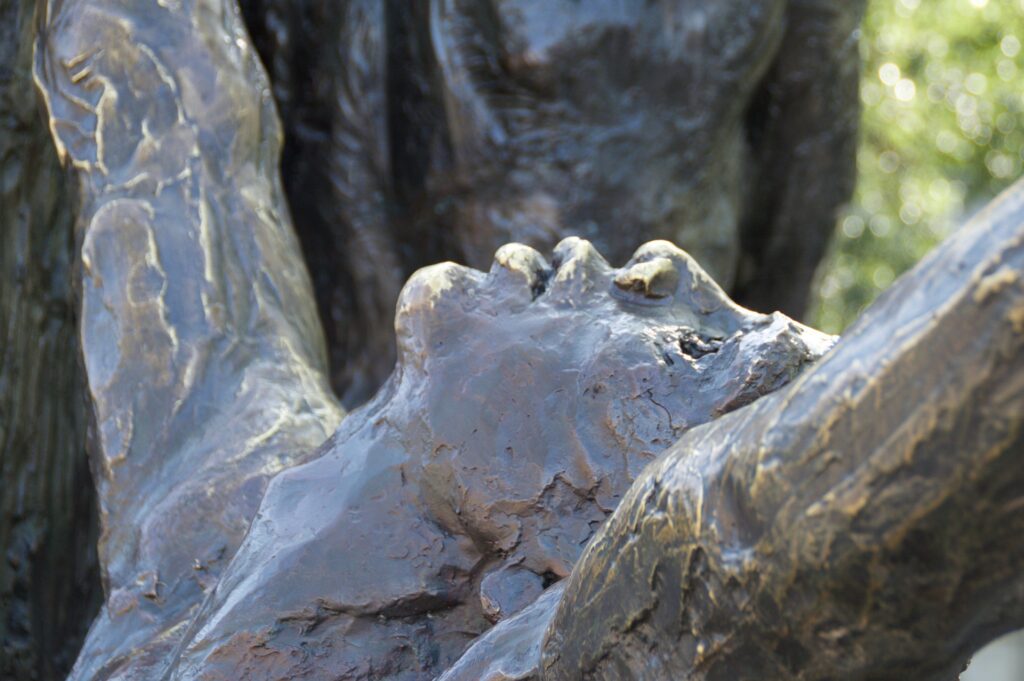
Inner freedom is conscious understanding of self and the world from God’s hand, and not from the perspective of the spirit of time and the enemy; self as a gift and a pledge; understanding the movement towards Logos as the very goal.
Unfortunately, there are some who want to turn people into voluntary slaves that will live with the illusion of freedom, in virtual reality, because such people are the easiest to manipulate.
Man is also offered freedom from own identity. An example of this could be theories of sexuality not being determined by biology, but by somebody’s free decision to choose their gender. It’s no wonder then that nowadays, in the West, as early as in primary schools, many children, without having true knowledge of what sexuality really is, and under the influence of liberal attitudes of the society, see themselves as bisexual or homosexual. Bisexuality has become so popular that in a group of five children or adolescents (ten to fifteen years old) at least three will say that they are bisexual. Bisexuality is cool, why not…
Not to mention video games and statistics that show that a child will kill over 10,000 people in video games by the age of seven! The story doesn’t end there. In many video games children are exposed to watching animal abuse, criminal behavior, disrespect for any authority, crude language, anarchy, hedonism…
Certainly, all of it is presented as harmless because it is a billions-dollar industry, larger than film industry, where a man is the cheapest item that just “clicks” half the time! And when we finally realize how much our children have changed, it seems to be too late…
Today’s leaders know that when you have empty identity, you become an amorphous mass that is suitable for any reshaping. They will come and tell such a man that he is free not only from his sexual identity but also from the evil in himself: envy, malice, hatred, jealousy, guilt…
Franz Kafka said in The Trial that there is no man who is not guilty to begin with. Fear as well as guilt are ontic categories.
But in the West, they say that it is not man’s fault, but the fault in genes, nature, environment… Guilt is removed from man, and he is allowed to be free from it… The West denies guilt. No one is guilty and there is no need for confession.
In all this, someone has forgotten that, after all, there is something in man that cannot be easily manipulated – conscience!
Every man is given conscience as the organ of love. It always includes the other because it hurts when you sin against somebody. Admitting having guilty conscience is the right path to solve a problem, ask for forgiveness, embrace again.
Loss of Meaning
Before beginning the story of the loss of meaning, it would be good to first rethink what meaning is. One way to define it is the essence, the content, when we give value to everything that happens around us and inside us. So, we start with ourselves. There is no man who, at least once in his life, has not asked himself the question: “What is the meaning of my life?”, which is the essence of meaning.
Children between the ages of three and six, start to ask questions about meaning, without having heard anything about it from anyone before. Adolescence is the right time and a great chance to awaken the question of meaning in people. So, everyone, sooner or later, either in despair or with a certain expectation, comes to the question of meaning and that question must be answered.
Perhaps it is in those everyday activities that the answer to the question of meaning is the hardest to find. According to some authors, man is the one who brings meaning. If so: Where does man find the question of meaning, if he not in himself? Here we come to the ontological question, and irrefutable evidence, of the existence of God!
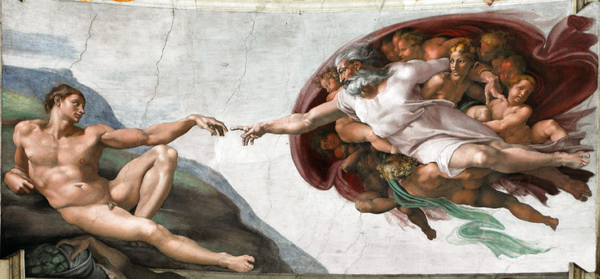
Some welcome Him into their lives and some don’t. Not everyone finds meaning, or more precisely, not everyone discovers the core of a religious being in themselves, but each of us is searching for value in life. Victor Frankl noted that need for meaning does not have to be religious, but it is the value category of human existence. However, according to Frankl, repressed religiosity leads to loss of meaning. Consequently, without God and meaning, it is easy for individual to exist, then come ideologies, liberalism, etc.
I addition to being not enough for us, today’s human consciousness also takes us away from meaning. It needs to be changed and expanded for re-examination to happen.
When it comes to the issue of loss of meaning, psychotherapy does not go deep enough to the root. It is where the definition of human health as the balance of the spiritual, mental and physical is revealed.
Meaning is the most important thing in life, and precisely because of lack of meaning, there is so much drug addiction and so many suicides nowadays. People don’t kill themselves because they have nothing to live on, but because they don’t know why they live!
In Lieu of Conclusion
Western civilization has long been dying of various diseases, and with it the whole world. However, the humanity has Someone who, out of unimaginable love, entered history and gave it a new meaning!
That Someone is the Lord Jesus Christ – Pantocrator, Almighty, Someone who holds everything in his hand and carries everyone on his back.
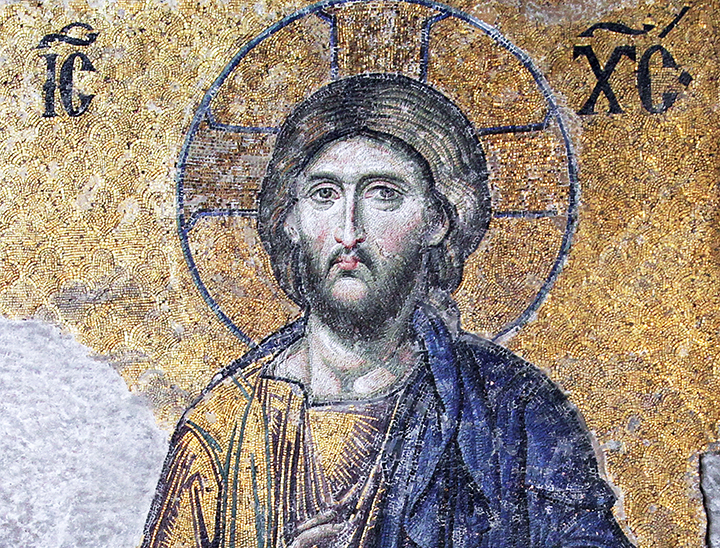
The fall is an expression of human freedom. Freedom has brought death, sin, alienation, failure into this world… Failure has thus become an inalienable legacy of every genetic code. Man has become fundamentally and seriously injured, which means he could no longer receive the whole of God.
What is needed is renewal, but renewal in the beginning. New arrangement in a new beginning. Christ solves that problem in Himself! He brings with Him a new unity of man and God. Thus, the consequences of the fall: fear, pain, alienation, become new causes of new relationships that only become possible with Him. He brings hope and meaning, regardless of which polyclinic division we’re in, oncology, cardiology, psychiatry…It doesn’t make a difference! We are all at infectious disease division because we all suffer from the same virus!
Ever since the incarnation of Christ, history is no longer a wheel, but a polyclinic, where we are all invited to the intensive care unit, the Church, to be treated and saved. What else could God raise for us humans, naturally ill beings?
That is why love introduces man to the personal way of existence, which is the space for individuation that Carl Gustav Jung taught about. Individuation that has nothing to do with individualism, and “which could be translated as ‘self-realization’, but not only of an individual person, but of an entire group in which one complements another to make a whole.”
If one is reduced to oneself, it makes for a closed and stuffy space. Man’s public space becomes the same as his personal space, so it is no wonder then that our public space is so full of sick ideas, kitsch, nonsense, immorality…
Whole-person love is a basic requirement and code! Love is not infatuation and passion, it is achieved through self-sacrifice and asceticism.
Therefore, man is born as an individual and becomes a person only in communion with God and other people, not through screens, video games or anything else he found to be enough in his self-sufficiency and self-isolation.
It should also be said that everything is being done to destroy tradition and family, to make man a voluntary slave not even aware of his (non) freedom. Freedom does not mean “I am free to do what I want.” Personal freedom is completely different from individual freedom. “Everything is permissible for me – but not everything is beneficial” the Bible teaches us. The Lord Jesus Christ tells us that “We are called to be free. But do not use your freedom to indulge the flesh; rather, serve one another humbly in love.”
He knows that because of the fear of pain – we are ill. Betrayal hurts, slander hurts, slaps hurt, turning one’s head away from one’s neighbor hurts… Man is a being of pain! But Christ did not come to destroy the pain, that we created ourselves, but to give meaning to pain, so that everything we regret becomes the possibility of sanctification!
Many want to achieve calmness, and there is no such a thing, although there is a sedative for everything. Calmness is not the absence of unrest, it is not Buddhist balance, it is the silencing of ego.
The only way to prevent guilt from turning into anxiety is sincere repentance. When a person repents, he then frees himself from fear. Faith is important because we have faith and hope in suffering. It can cure everything! It is no coincidence that “disease comes from the realm of nature, and medicine from the realm of the spirit.”
Otto Weininger said that “It is not the fear of death which creates the desire for immortality, but the desire for immortality which causes the fear of death.”
We cannot see the whole of the logistics of this pandemic, as we are overwhelmed with information, but have no answer to basic existential questions.
Today’s man is more afraid of freedom than of slavery. People used to write about freedom, sing about freedom, dream about freedom, give their lives for freedom, which is no more…
Spiritual death is an attitude! It is our decision how we want to exist – for life or death. Do we want to “adapt to the world or to be transformed and renewed in the direction of Christ’s growth”?
“The Church is a hospital, not a courtroom!” It is the only hospital that heals and where to heal means to return the sick to the whole, to achieve the whole, to be in the community of love – with God, with one’s loved ones and with oneself. It is Trinitarian synergism.
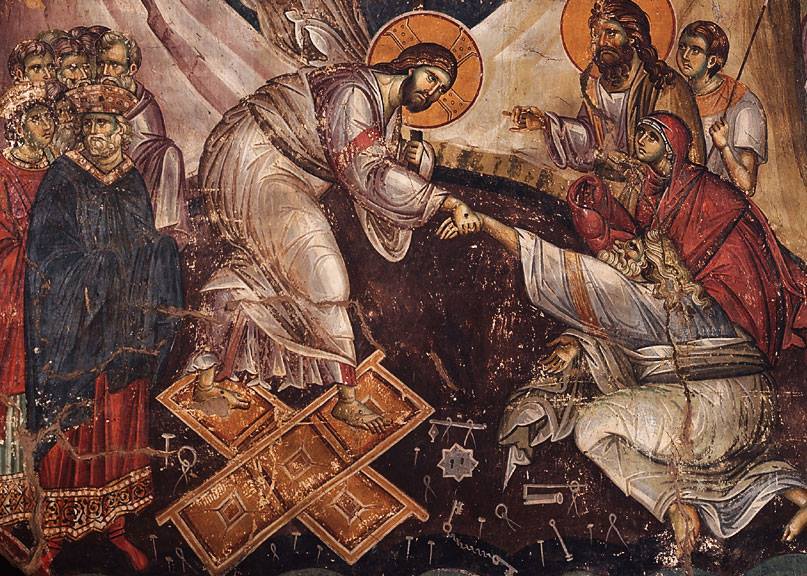
We don’t know if this time is just the beginning of new temptations. What we do know: the game is still on, and we are all given not only to receive living water, but to become the source of living water –
While there’s still time…


